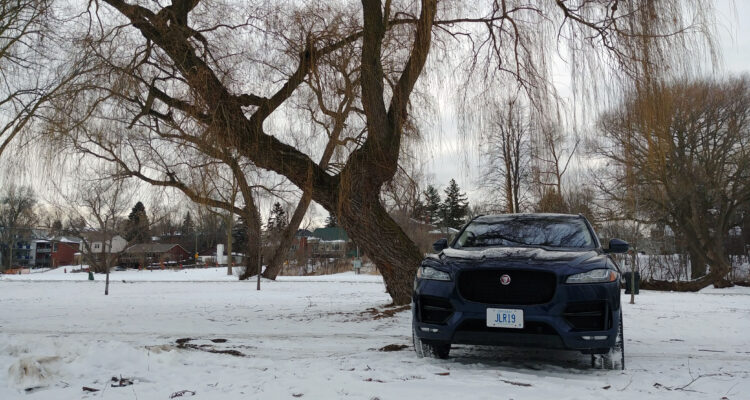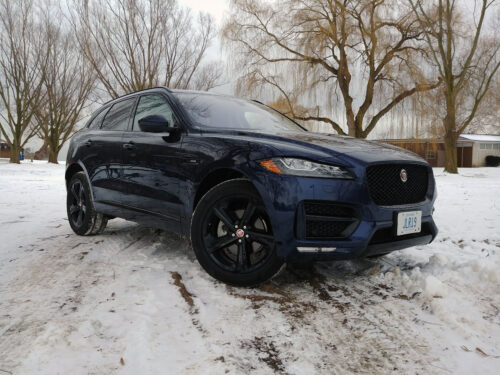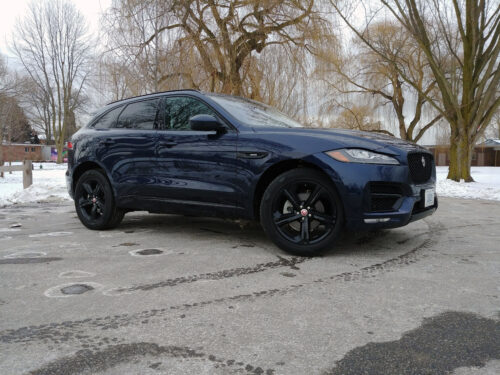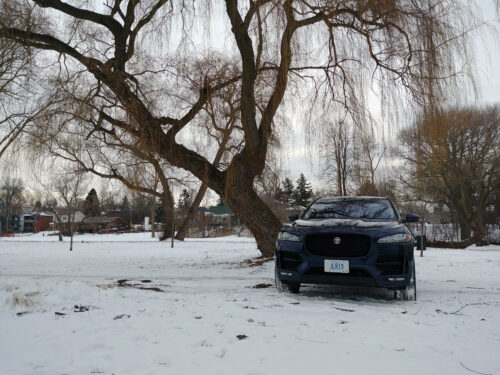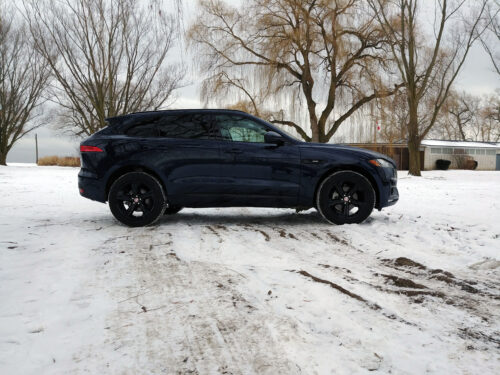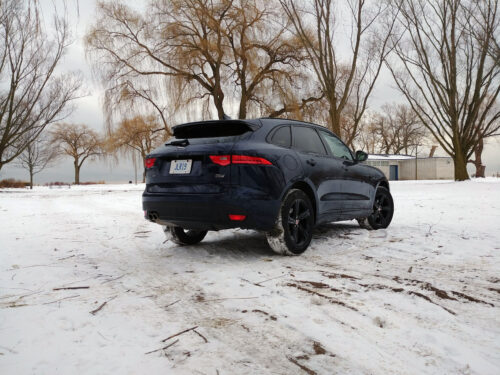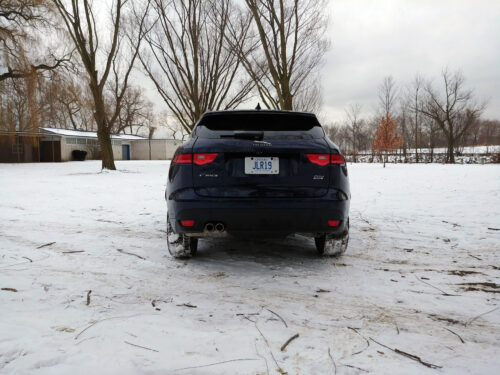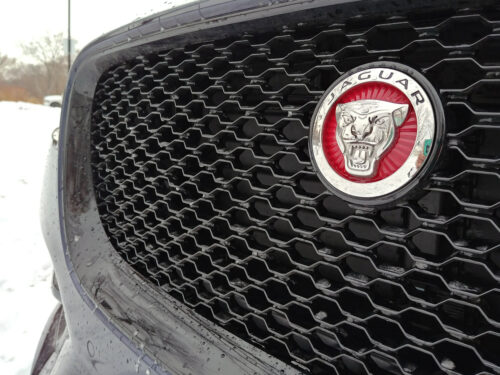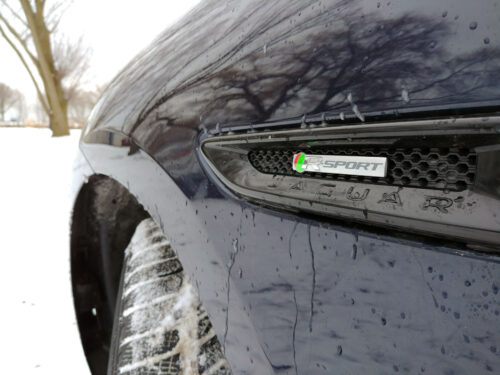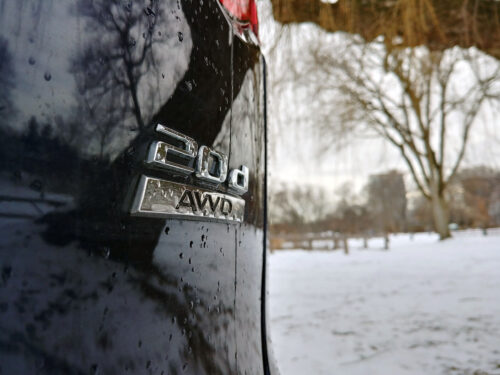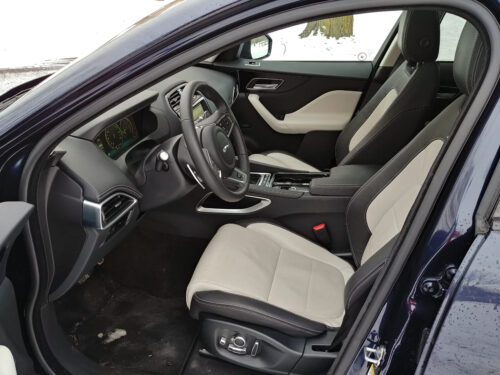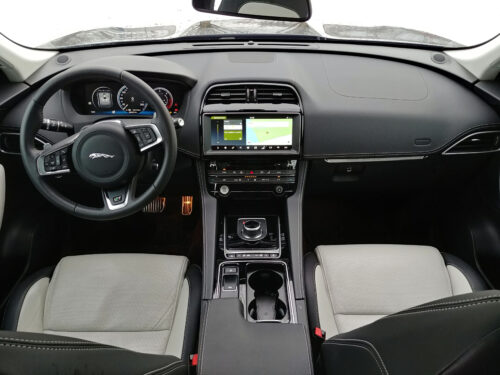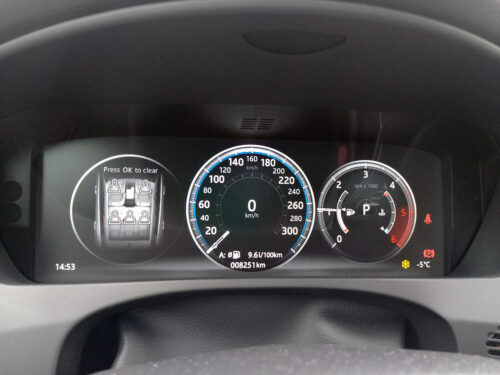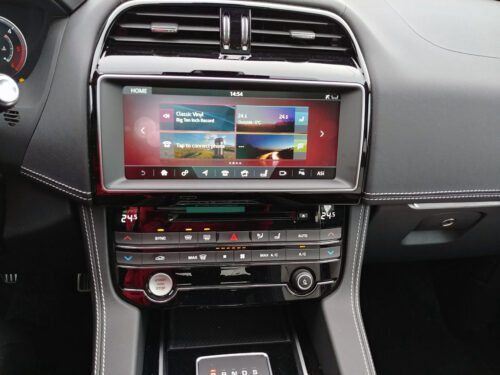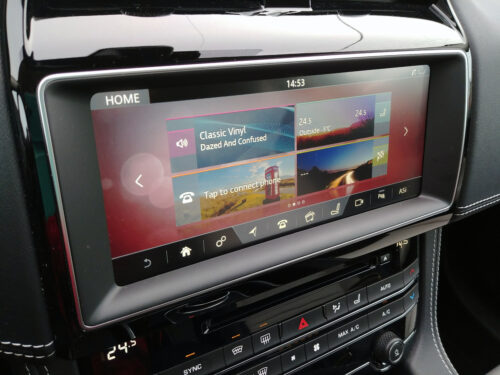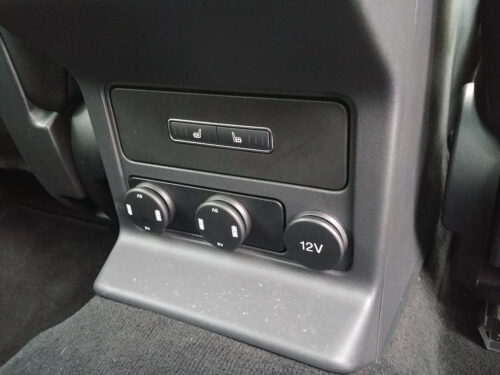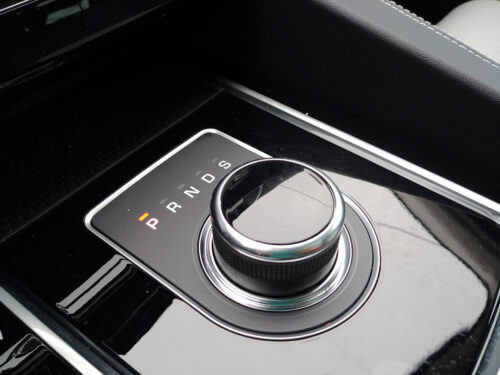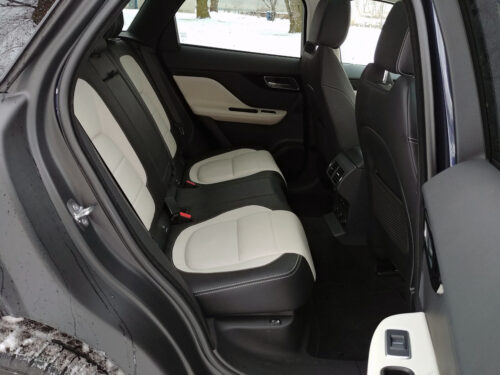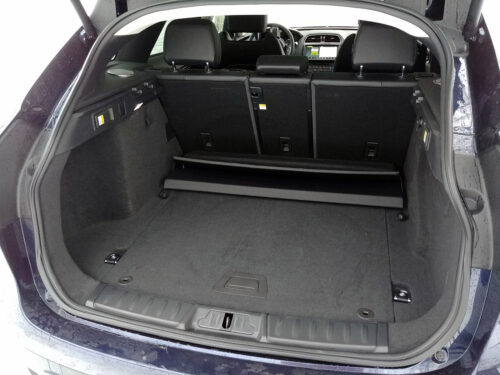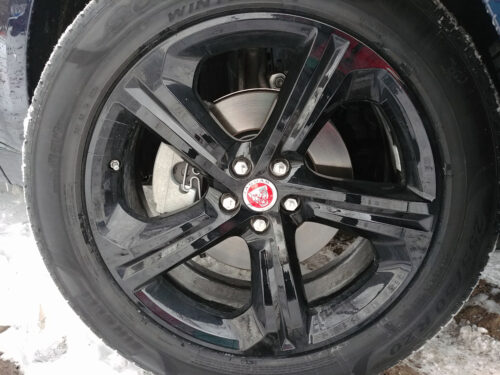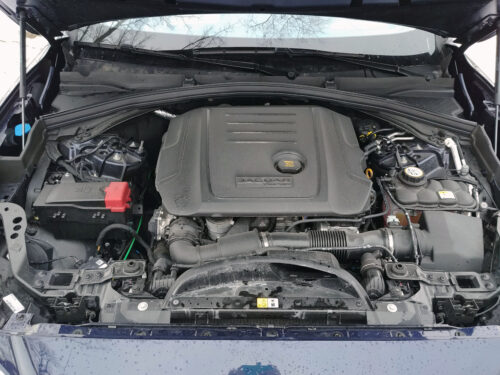With time and experience, I have come to understand there is something Jaguar does well that doesn’t get the same level of exposure other features of the brand seem to get. Or course, I’m not referring to the design; the work of Ian Callum needs no introduction and remains a representation of timeless elegance and performance. But it’s not a secret. A sexy-looking Jaguar isn’t a big deal anymore; it’s the standard.
What I’ve discovered over the past year is that the British manufacturer actually makes a good diesel engine. Only one block is currently available should you pay the premium for a 20d badge: a 2.0L, four inline cylinders, 180-horsepower turbodiesel engine, shared by the XE and XF sedans and the F-PACE.
I tested the engine first hand in the mid-size Jaguar XF last year. After roughly 700 kilometres and a snowstorm, the car averaged 7.3L/100km, the kind of number I normally see displayed in smaller, petrol cars. It was off to a good start.
Would the experience be similar in a heavier vehicle? Despite the manufacturers’ best intentions, four-cylinder engines don’t always keep the promise of a better fuel economy in bigger vehicles. In many cases, the engine ends up having to work overtime to carry the extra weight around, costing precious digits on the fuel-economy gauge.
I was curious to see how well the performance and fuel economy of the diesel powertrain would translate in the F-PACE. After all, if the XF is rated at 269 lb-ft of torque, the luxury SUV gets a boost to reach 317 lb-ft of torque which means performance should be adapted to the size of the vehicle, but the fuel economy could potentially suffer.
I had already driven the then-new-to-the-market F-PACE in all its Supercharged glory, equipped with a 380 horsepower, 3.0-litre V6, which gave me a good idea of what the diesel engine was going up against. With the V6, fuel economy was rated at 12.3L/100km, which isn’t monstrous considering the size of the engine and of the vehicle.
Prior to testing the F-PACE, I also got my hands on the latest comer to the Land Rover lineup, the new Range Rover Velar, available with the same diesel engine block. Despite a lack of personality on the road, the Velar D180, the engine’s fuel economy was once again the most interesting aspect of the turbodiesel powerhouse.
Considering the F-PACE is slightly smaller and lighter than the Velar, chances were that power was also going to feel a little less limited in the Jag.
The table was set. I had all the tools on hand to give the F-PACE 20d a fair shot. Drumroll. After a week and a few hundred-something kilometres, my average consumption hovered around 9.5L/100km. Ding ding ding! That’s a notable improvement over the admittedly more exciting, but thirsty V6.
The engine also felt more at ease carrying the vehicle around than it did in the Range Rover Velar. The eight-speed automatic transmission – with a rotary selector – is one of the less successful features from the manufacturer in my opinion. I have found it to be a little to invasive in most of the models I have tested.
Equipment-wise, the F-PACE 20d checks every box, though I am looking forward to an upgrade of the Jaguar infotainment system. It is showing its age and is in dire need of some TLC, especially compared to the swanky stylish new dashboard and system found in the Range Rover Velar.
The diesel engine comes at a $1,000 premium, which is an easy pill to swallow if you want to give the content of that 60-litre tank a prolonged lifespan. The 20d version is offered with the Premium, Prestige and R-Sport trims and with a starting price of a little over $51,000 that will get you into a luxury diesel vehicle. The 2018 Jaguar F-Type 20d is a solid competitor to keep in mind if you’re looking for a luxury, diesel-powered SUV.
2018 Jaguar F-PACE R-Sport 20d
Price: $61,000.00
Freight: $1,600.00
Configuration: Front engine/all-wheel drive
Engine/transmission: 2.0L 4-cylinder/ 8-speed ZF automatic
Power/torque: 180 horsepower/317 lb-ft
Fuel (capacity): Diesel (60 L)
Combined fuel economy ratings: 8.1 L/100 km
Observed fuel economy: 9.5L/100km
Warranties: 4-years, 80,000 km
Competitors: BMW X5 xDrive35d, Mercedes-Benz GLE 350d 4MATIC
Related links:
Jaguar Canada
Canadian Auto Review
Driving.ca



